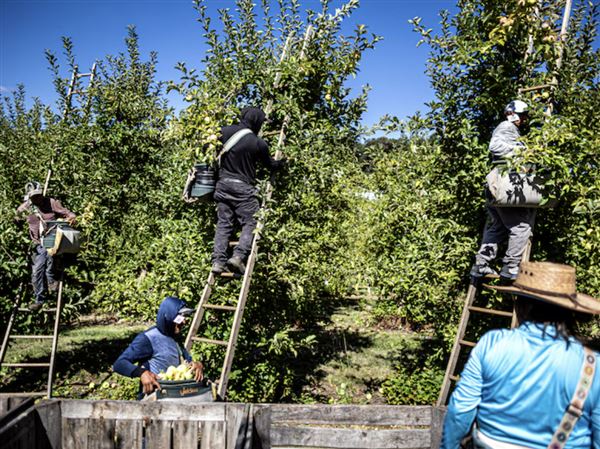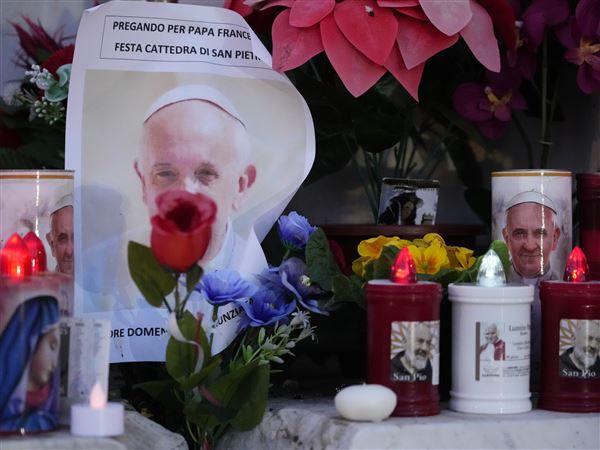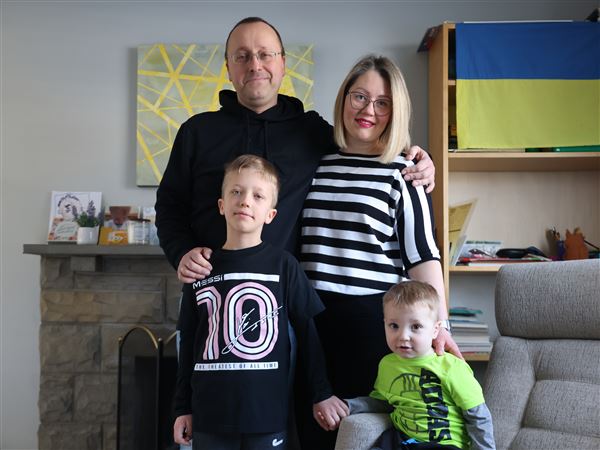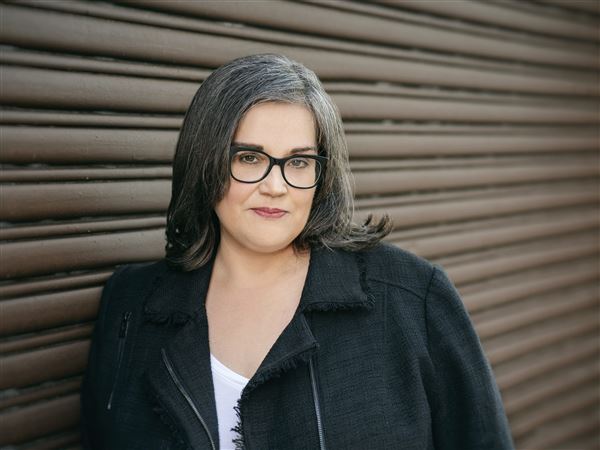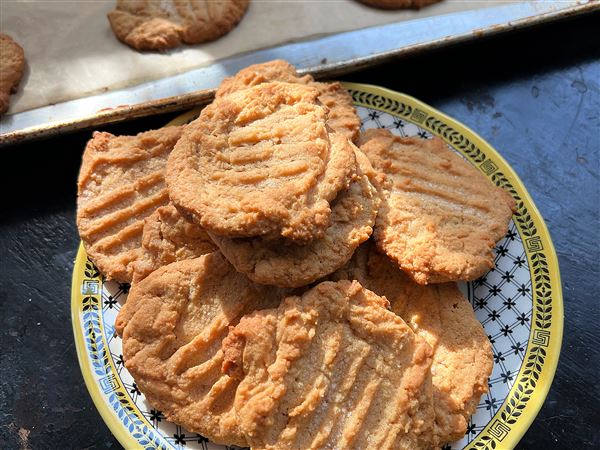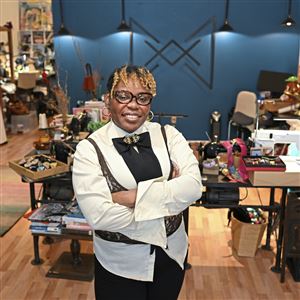Ashley Baia is officially a footnote in political history.
No matter what else she goes on to achieve, she'll be remembered, in part, as the 9-year-old girl Sen. Barack Obama spoke of Tuesday near the end of his landmark speech on race in America.
The little girl who ate mustard and relish sandwiches for a year.
"I'm a field organizer and I get to be a part of this," said Ms. Baia, 23, of Venice, Fla., yesterday at Obama headquarters in East Liberty. "So, every day is pretty great in general."
Being mentioned in what some predict will be one of the most remembered speeches in American political history, is just icing on the cake, she said.
"It's a cool thing," said Ms. Baia, quite unassuming and Bohemian prep in her khaki pants, green-and-white striped Oxford shirt, tan pullover V-necked sweater and flip flops. "I just think of my story as just my story. ... I don't feel my story is any more important than anyone else's."

Sign up to be a citizen contributor covering events and sharing your thoughts on the Pennsylvania primary campaign using your mobile phone.
Visit our VoxPop section to learn more and join up today!
In 1994, her mother, who had uterine cancer, lost her job because she had missed so much work and subsequently lost her health coverage. Ms. Baia, then a little girl, tried to think of a way to ease her mother's financial worries.
"She knew that food was one of their most expensive costs," Mr. Obama said in his speech, "and so Ashley convinced her mother that what she really liked and really wanted to eat more than anything else was mustard and relish sandwiches. Because that was the cheapest way to eat."
Her mother is healthy and strong today.
During a regular roundtable discussion with campaign workers in South Carolina earlier this winter, she told that story and said she joined the Obama campaign to "help the millions of other children in the country who want and need to help their parents, too."
Mr. Obama cited her story to show that her campaign work had successfully bridged some of the distances between the races.
Mr. Obama had mentioned her story before, in a speech he gave at Ebenezer Baptist Church in Atlanta on Dr. Martin Luther King Jr.'s birthday. However, since Tuesday, there has been much more media clamoring to know about her. Her cell phone has been ringing nonstop.
Ms. Baia, in Pittsburgh since March 12, will be here through the April 22 Pennsylvania primary, registering voters wherever she can find them -- universities, high-traffic areas, bus stops, cafes, even a St. Patrick's Day parade featuring Mr. Obama's opponent -- and training volunteers to run phone banks, build precinct teams, and simply spread the word.
"It is like being a roadie almost," she said. The amount of work to be done often dictates the length of her work day.
"Some days go 18 hours, some days go 32," she said, laughing.
She said her mother raised her to have a political conscience, teaching her the words and deeds of John F. Kennedy, Robert F. Kennedy and Dr. King.
She recalled doing canvassing work in Sarasota with her mother for the Kerry-Edwards campaign in 2004, in one of the poorest parts of the county. A little 9-year-old boy ran up to her and started telling her about his family's troubles: how his mother worked three jobs, how he was looking after his younger brothers and sisters and how Congress had cut food stamps.
"I was kind of blown away by him," she said, adding that she saw reflections of her 9-year-old self trying to help her mother. The next day, she changed her major from film production to political science. She later added international relations.
Later that year, she heard Mr. Obama's speech to the Democratic National Convention, when he first burst onto the national political scene. "I was in awe," she says. "This was the kind of person I'd been waiting for. How he'd grown up and what he believed in and just his style. He wasn't this guy who was saying things to be political."
She pledged then that if he ever ran for national office, she'd drop everything to work on his campaign. In the meantime, she researched his positions to see whether his actions matched his words, and they did, she said.
After graduating from the University of South Florida, she joined the Obama campaign in June 2007 and since then has racked up more than 30,000 miles on her black Dodge Stratus, which she calls "Bessy," organizing for the campaign in South Carolina, Alabama, Texas and Mississippi before arriving in the Keystone state the day after the Mississippi primary.
An October 2007 New York Times story described Ms. Baia, who was campaigning at a black beauty shop in South Carolina, as "a modern-day circuit rider, traveling from salon to salon on Thursdays, Fridays and Saturdays, the busiest days for getting a hairdo."
One of her favorite days on the campaign was election night at a South Carolina precinct where it had been extremely tough to organize people.
"We got results for the precinct, it was: 347, Obama, 22, Clinton, 6, Edwards," she said. "We did what we were supposed to do and by not paying people off."
Ms. Baia isn't sure where she's headed after Pennsylvania. Indiana would be fine, but she wouldn't mind campaigning in Puerto Rico, either.
"I'm happy to be here and take part in this," she said. "To be in this moment in history."
First Published: March 20, 2008, 8:00 a.m.
